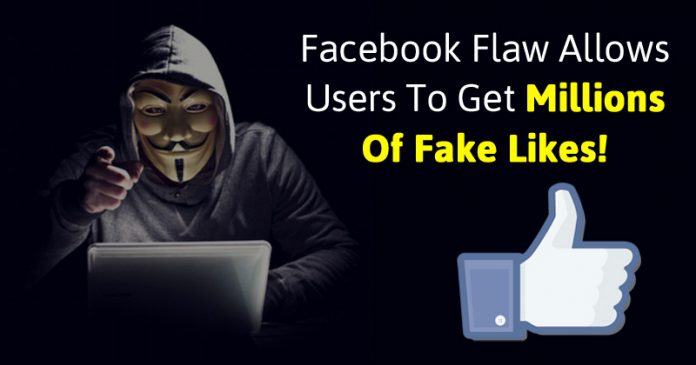Recently, the security researchers at the Lahore University of Management and the University of Iowa have discovered that millions of false and authentic Facebook accounts and even fake Facebook likes have been scammed through a severe flaw on the giant social media site Facebook.
Recently, a post was published on the social network giant Facebook’s platform that unusually received lots of likes instantly which was suddenly noticed by many Facebook users who found the incident quite strange.
The security researchers at the Lahore University of Management and the University of Iowa have discovered that more than 1 million false and authentic Facebook accounts have been scammed through the “collusion network” flaw.
Through this new exceptional flaw, more than 100 million Facebook likes have been exchanged. However, this study was initially conveyed in the run up to the 2016 US presidential election, where the actual results were altered, as some claim, and not only that it happened due to the fake news and fake campaign on the social network giant Facebook’s platform.
According to the security researchers of the Lahore University of Management and the University of Iowa, just by signing up, members of those fake and vulnerable services simply grant them the ability to like and comment on the posts of other members. Hence, through this, they simply grant access to these fake services to use their full account rights through which scammers simply use them boost certain posts and accounts.
Here is what the security researchers of the Lahore University of Management and the University of Iowa wrote: “Such collusion networks of significant size enable members to receive a large number of likes from other members, making them appear much more popular than they actually are”.
The social network giant Facebook has been in the spotlight since the 2016 presidential election, as some believe that due to the fake news and fake campaigns which were distributed and publicized on the social media site, Facebook simply helped turn the elections.
As recently, the social network giant Facebook even stated that an influencing campaign which is expected to be from Russia had already spent more than $100,000 since May 2015 on ads that simply supported socially and politically polarizing the views on the social network Facebook.
Recently, a post was published on the social network giant Facebook’s platform that unusually received lots of likes instantly which was suddenly noticed by many Facebook users who found the incident quite strange.
The security researchers at the Lahore University of Management and the University of Iowa have discovered that more than 1 million false and authentic Facebook accounts have been scammed through the “collusion network” flaw.
Through this new exceptional flaw, more than 100 million Facebook likes have been exchanged. However, this study was initially conveyed in the run up to the 2016 US presidential election, where the actual results were altered, as some claim, and not only that it happened due to the fake news and fake campaign on the social network giant Facebook’s platform.
According to the security researchers of the Lahore University of Management and the University of Iowa, just by signing up, members of those fake and vulnerable services simply grant them the ability to like and comment on the posts of other members. Hence, through this, they simply grant access to these fake services to use their full account rights through which scammers simply use them boost certain posts and accounts.
Here is what the security researchers of the Lahore University of Management and the University of Iowa wrote: “Such collusion networks of significant size enable members to receive a large number of likes from other members, making them appear much more popular than they actually are”.
The social network giant Facebook has been in the spotlight since the 2016 presidential election, as some believe that due to the fake news and fake campaigns which were distributed and publicized on the social media site, Facebook simply helped turn the elections.
As recently, the social network giant Facebook even stated that an influencing campaign which is expected to be from Russia had already spent more than $100,000 since May 2015 on ads that simply supported socially and politically polarizing the views on the social network Facebook.

